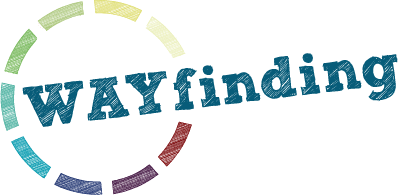| Anne Williamson |
We are story-telling creatures. We tell our stories at length in books and film, and in short vignettes on Facebook and Instagram. We ask our roommates - aged 2 to 102 - to tell us the stories of their day, to listen as we share ours. We shout our stories, whisper them, sing them, photograph them, pray them. And, not just our own: we love telling the stories of others too.
All these stories we tell, we hear, they swirl around us. Are they also a part of us? Becoming so? What pieces of the stories we tell speak to the unspoken stories, beliefs, inside? What pieces of the stories we hear become the foundations of our new "unspokens"?
Because in a lifetime of telling stories, it is the unspoken ones that matter most. These are the stories that play "on loop" in our head or wait patiently in dark corners until triggered, only to retreat again before we can name a single feature. So it is, at first, we hardly know they exist. We don't recognize their imprint. We simply experience their wake - for the luckiest of us a kind of joyful resiliency; for the rest, pained, reactionary upheaval; because for most of us, our unspoken stories are our most broken.
This is how we come to sin. We don't understand, don't even recognize, the narrative players in our own head; so, they're given free range to cause havoc. These broken stories and beliefs spin our everyday experiences into echoes of pain. In response, we numb, deflect, inflict our own; we sin. We become our shadow side - for an instant or for years.
The grace here, the miracle waiting, is our sin then also holds the keys to our redemption. If it is our broken, unspoken stories that lead us to sin; then, it is our sin that can best lead us to - and if we choose, through - our brokenness. Parul Sehgal speaks beautifully to this idea in her TED Talk on this week's deadly sin, envy: "[Envy] is at it's crux a quest for knowledge, a quest for truth, painful truth... Grief, humiliation, loss these were the avenues to wisdom.... Jealousy reveals us to ourselves. And, does any other emotion crack us open in this particular way?... Does any other emotion teach us to look with such peculiar intensity?"
Our sin, it has the power to crack us open, to reveal to us our unspoken stories and beliefs. Of course, this process is painful: it's hard to remember. It's hard to confront all of who we are, to know our brokenness and sin are part of what we've offered this world, our loved ones. It's hard to know our brokenness has become their own. It's hard; but, it's also the root of hope - the root that speaks the unspoken, the root that heals, the root that becomes the better version of myself tomorrow.
We'll be exploring these ideas and more this week in WAYfinding. If you can't join us in groups, listen to Sehgal's TED Talk below. In conversation with this blog post, what do you think? Share with a friend, partner, family member. What do they? Then, take a moment to listen for what's stirring in you. Perhaps you're feeling pulled to listen more deeply, learn something new or love better. Set your intention and go about the work of being or doing.
My offering: Set an intention to notice. Next time an experience fills you with envy, anger, pain, etc., notice it. Sit with it a few minutes. Don't judge it; just see if you can catch a glimpse of the "unspokens" behind it. If you're feeling really brave, share your wonderings with a trusted friend, therapist, partner, God. Allow your shadow side, your sin, to break you open.

